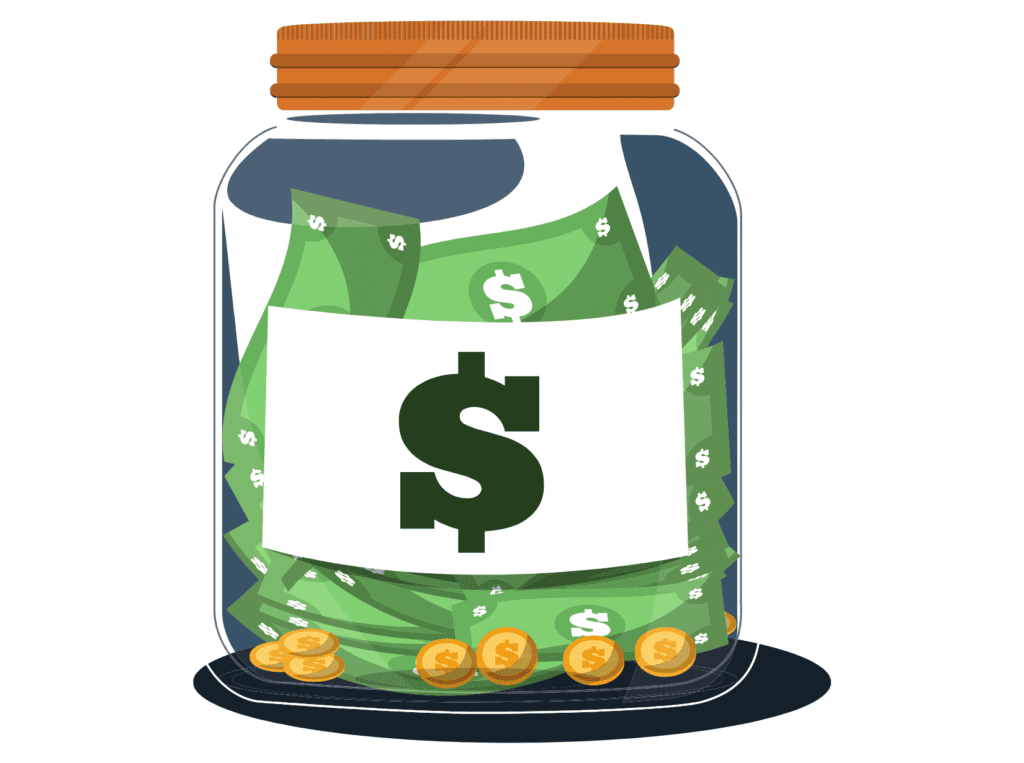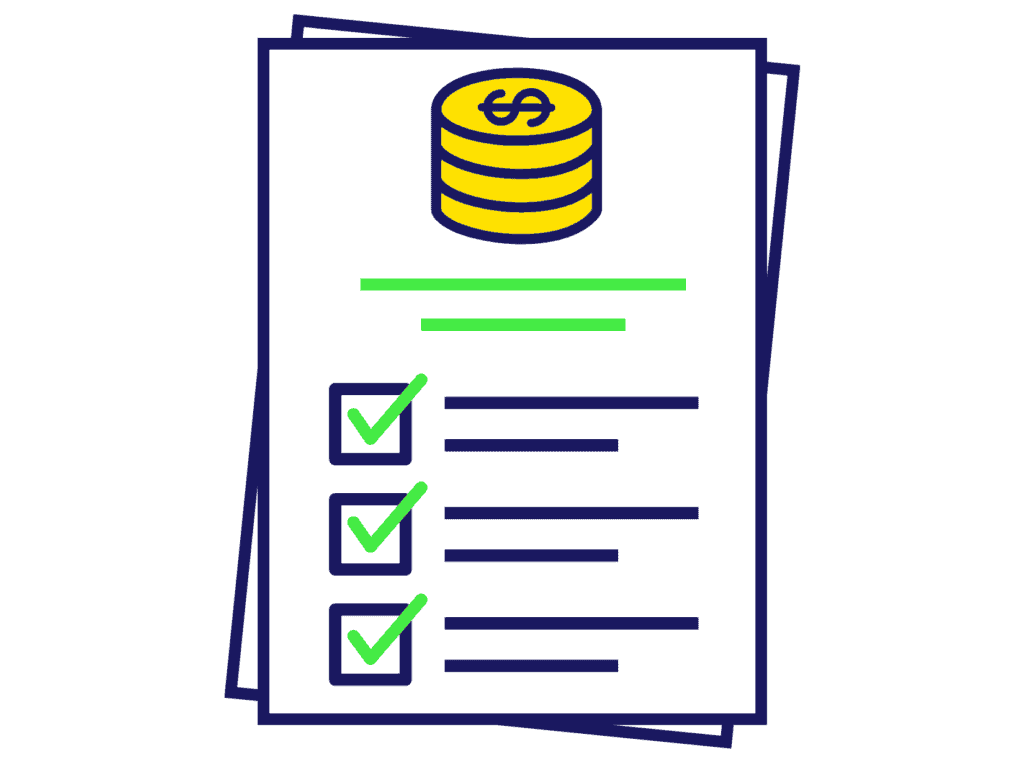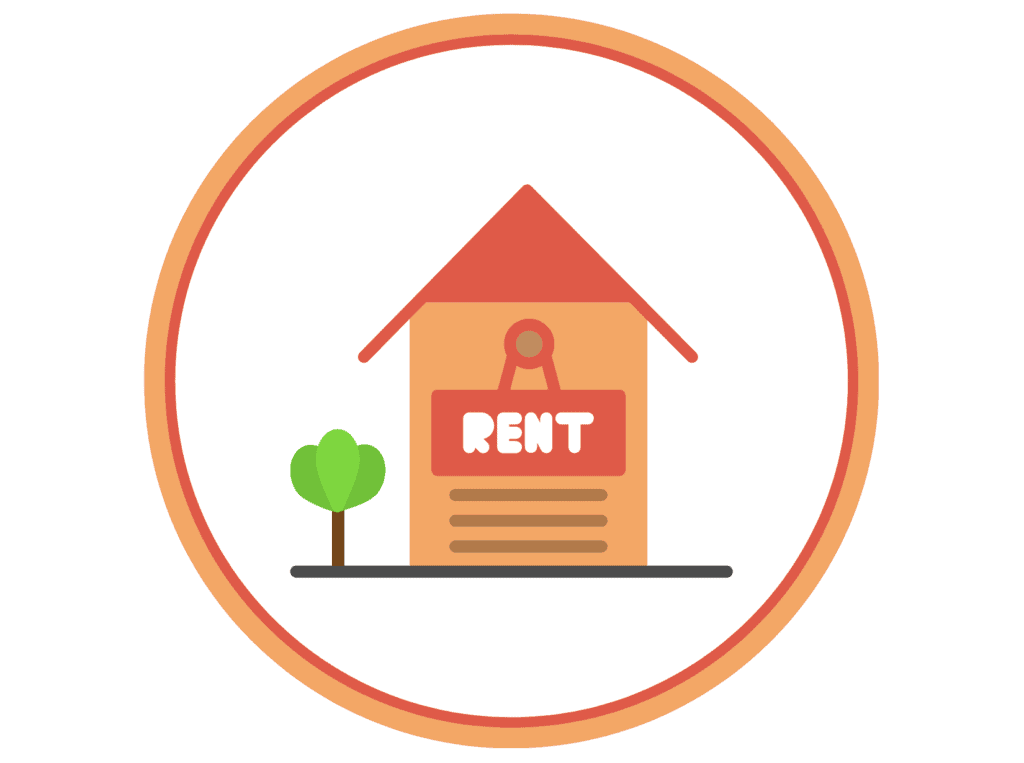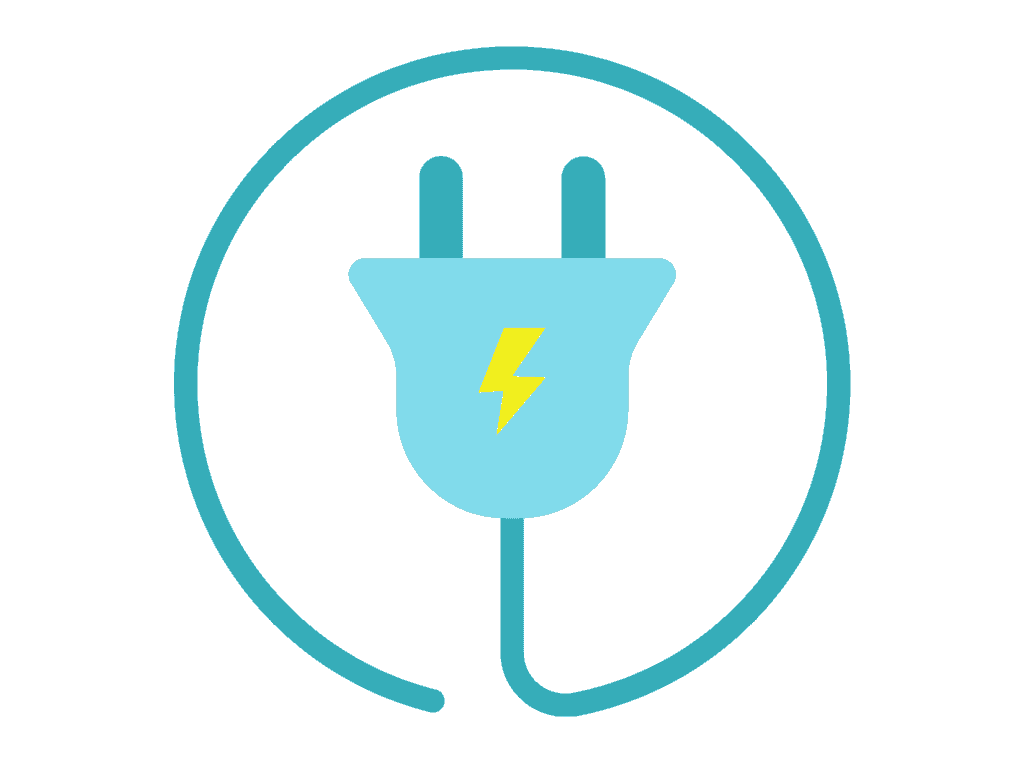Greetings! Thanks for coming to “19 Simple Tips On How To Save Money On Low Income.”
Here you’ll find out 19 easy and effective ways to save money fast.
Personally, these tips have allowed me to:
- Get and stay out of debt for 17+ years and counting.
- Pursue a realistic early retirement dream of age 41.
- Fast track my goal to be a stay at home father with my beautiful kids, watching and molding them grow to be productive members of society.
Take a peek below to see what type of side hustles, budget apps, and government assistance programs help you save ALOT money.
Now, let’s find out how to save money on a low income.
How To Save Money Fast On a Low Income

1. See A Financial Advisor
When you are living on a lower income, it is important to make every penny count. One way to do this is to see a financial advisor. Financial advisors can help you create a budget and stick to it, make wise investment choices, and save money in the long run.
If you are struggling to make ends meet, a financial advisor can help you find ways to reduce your expenses and free up some extra cash. They can also show you how to invest your money in a way that will provide you with a steady income stream so you can be in a solid financial situation.
2. Budget

Budgeting is one of the most important steps you can take if you want to save a few hundred dollars while on a low income. Not only will creating and sticking to a budget help you stay on track financially, but it can also provide a sense of relief and freedom.
When creating a budget, it’s important to be realistic. You may need to make some sacrifices, but there are many budgeting strategies you can use to help you with your savings goals, and budgeting apps can help with that.
For instance, YNAB can be a great tool to help you budget money, minimize unexpected expenses, and save hundreds while on a low income. It has powerful budgeting features and helpful tutorials, which let you customize the type of budget you want so you’re most likely to stick to it.
Also, one of their bragging points is that “new budgeters save $600 in their first two months and more than $6,000 their first year.”
User-friendly and big money saved…
Doesn’t get better than that. 😁
3. Pay Yourself First
Pretend that you’re taxing yourself 20%, as you would never see that money.
Now, let’s pretend you make $1,000 per month. If you paid yourself first, you would take home $800 and save $200.
Even if you’re on a strict budget, you can still find ways to pay yourself a few bucks first. Try transferring a fixed amount of money from your checking account to a savings account each month, or invest in a mutual fund or other low-risk investment. By making saving a priority, you’ll be in a much better position to weather difficult financial times.
(It’s also one of the best ways to achieve financial independence. 😁)
4. Get Out of Debt
Debt can be a major weight on your shoulders (especially credit card debt), preventing you from achieving your goals. In fact, in 2021 the average American was over $90,000 in debt.
That’s crazy!!!
And a lot of folks get there because there overplayed, underpaid, and do not have enough time to sit, research, reflect, then address the problem.
So what is a person to do?!?!
Enroll in Dave Ramsey’s Financial Peace University.
They did all the research all you have to do is follow the simple instructions.
At Financial Peace University, you’ll learn how to eliminate debt and stay out of it. You’ll learn how to take control of your money, attack your debt with a vengeance, and save for emergencies. When you’re out of debt, you can focus on building wealth and giving generously. Financial Peace University can help you achieve your goals and get on the path to financial peace.
If you’re struggling to make ends meet, don’t despair. Financial Peace University is a proven program that can help you get on the right track, start paying those high interest debt payments, and saving money fast.
(And if you’re one of the many folks who are tired of living paycheck to paycheck, act now!)
5. Start A Side Hustle

A lot of people think that in order to make money, they need to have a special talent or be in a certain profession. But that’s not always the case. In fact, there are a few low cost ways to make money that don’t require special skills or training. Starting a side hustle is one of those ways.
So why should you start a side hustle? There are a number of reasons. For starters, a side hustle can help you save money. If you don’t have to drive to work and spend money on gas, you can save a lot of money over the course of a year. A side hustle can also help you make money on the side. If you need a little extra money to pay bills or save for a vacation, a side hustle can help you do that.
So what’s a great way to start?
Blogging!
The average blogger made $37,000 in 2021, and YOU CAN TOO!
In just 2 SIMPLE steps, you can begin your blogging journey:
- Create a website with Bluehost (JUST 2.95 A MONTH!)
- Blog about whatever you want!
(Yes, there is some learning to do, but it’s not rocket science. It’s more tedious than complex. Plus, most of the resources (education and software) are free on the internet!)
Enjoy!!!
6. Become A DIY Expert
There are a few things that you can do in order to become a DIY expert on a low income. The most important thing is to be patient and take your time learning. Don’t try to do everything at once or you’ll get overwhelmed. Start with the basics and work your way up.
Home repairs can be one of the biggest expenses, and one of the best ways to save money on repairs is to do them yourself. Often, you can find tutorials online that will show you how to do everything from fixing a leaky faucet to replacing a window. Not only will you save money, but you’ll also learn valuable skills.
Also, don’t be afraid to ask for help. There are plenty of people out there who are more than happy to share their knowledge and expertise. Ask your friends, family, or even your neighbors. Chances are, someone has been through something similar and can offer you some great advice.
7. Telework
Imagine that you could save big on gas by working from home! In 2021, the average American spends $2,971 per year on gas. If you telework, you can avoid all of that! Plus, you’ll save a lot of time by not having to commute. You can use that time to make more money or get ahead in your career. Teleworking is a great way to spend less money and save time – give it a try!
8. Move To A Cheaper Location
Even if you’re only making minimum wage or $15,000 a year, you can still save money by moving to a cheaper location. According to cnbc.com, in 2021 Sioux Falls, SD was the most affordable city in America, with an overall cost of living that’s 6% lower than the national average.
Los Angeles, CA, on the other hand, was the least affordable city, with an overall cost of living that’s 43% higher than the national average. So if you’re looking to save money, consider moving to a cheaper city.
9. Rent Out Your Home

There are many reasons why people might choose to rent out their homes. Perhaps they need the extra income to cover their mortgage, or maybe they’re looking to generate a little extra cash on the side. Whatever the reason, renting out your home is one great way to increase your income.
There are a few things to keep in mind when renting out your home. First, make sure you’re familiar with your local laws and regulations governing rental properties. You’ll also need to make sure your home is in good condition and up to code. And be sure to screen potential tenants carefully; you want to make sure you’re renting to responsible people who will take care of your property.
If you’re looking to rent out your home, there are a number of websites and services that can help you get started. Just do your research and be sure to protect yourself and your property. Renting out your home can be a great way to make some extra money, but it’s important to do it safely and responsibly.
10. Don’t Waste Your Food
In the United States, we waste an alarming amount of food every year. This costs us billions of dollars and results in millions of meals going to waste. However, there are a few ways that you can prevent wasteful food spending and save yourself a lot of money in the process.
One way to optimize your food budget is to plan your meals in advance. When you have a plan, you’re less likely to buy too much food and end up throwing it away.
Another tip is to only buy what you know you’ll eat. If there’s something in your fridge that’s about to go bad, eat it right away! And finally, don’t be afraid to freeze food. If you can’t finish a meal, freeze the leftovers instead.
11. Meal Prep
Want to know how to save money fast on a low income?
Meal planning.
Meal prepping means cooking or assembling your meals ahead of time so you have something to eat during the week. Not only does this help you save money, but it also helps you stay on track with your diet and eat healthy, homemade meals.
Also, making and following a meal plan is extremely awesome because it saves you A LOT of time in the kitchen throughout the week. When you cook or assemble meals ahead of time, you don’t have to spend time cooking every day. This leaves more time for you to do other things, like work or exercise.
12. Adapt The Health is Wealth Mindset

U.S. health care spending is on the rise, but that doesn’t mean you have to break the bank to stay healthy. In fact, following a few simple tips can help you stay healthy while spending less.
One way to keep your health care costs down is by adopting a healthy lifestyle. Eating a nutritious diet, exercising regularly, and getting enough sleep are all important ways to stay healthy. Not only will you be less likely to need medical care (mainly just annual doctor visits), but you’ll also save money on groceries and gym memberships.
If you do need to see a doctor, be sure to shop around for the best price. Many health care providers offer discounts for uninsured or cash-paying patients. You can also save money by choosing a health plan that fits your needs and budget.
(And if you need some more wellness tips, check out this health is wealth beginners guide. 😊)
13. Use Cash Only
When it comes to spending money, using a credit card can be a really bad idea. You might think that using a credit card is a safe way to pay for things, but in reality, you can end up spending a lot more money if you use a credit card.
Cash may be the best way to go. In fact, consumers will spend 83% more on credit cards than they do with cash. That’s a lot of money that you could be saving if you just used cash instead!
So next time you’re out shopping, try and pay with cash instead of a credit card. You’ll be surprised at how much money you can save.
14. Get Government Aid
Living on a low income can be difficult, sometimes making your financial outlook seem grim, but luckily there are some government programs that can help make life a little easier. Usa.gov is a website that explains different government benefits, including how to apply for them.
Some of the most common government benefits are unemployment benefits, Medicaid, food stamps (SNAP benefits), the Children’s Health Insurance Program (CHIP), and welfare or Temporary Assistance for Needy Families (TANF).
Each of these programs has different requirements and application processes, so it’s important to do your research before applying.
15. Cut Back Electrical Usage

The electric bill is one of those housing costs that can be a constant pain in the rear. Fortunately, lowering the costs on it is easier than you may think. In fact, by making a few small changes, you can cut your bill by quite a bit. Here are a few tips to help get you started:
- Check your electrical usage. The first step is to figure out how much electricity you’re using. To do this, check your utility bill to see how many kilowatt hours (kWh) you consumed in the last month. You can also check your home’s electricity meter to get an idea of your hourly usage. Once you know how much electricity you’re using, you can start looking for ways to reduce it.
- Unplug electronics when not in use. Many people don’t realize that electronics still use electricity when they’re turned off. To avoid wasting electricity, unplug electronics when you’re not using them.
- Use energy-efficient appliances. They use alot less electricity than traditional units. If you’re looking for a new appliance, you might try buying an energy-efficient model.
Do yourself a favor, listen to your spouse, eliminate bad habits and turn off the lights! 😁
16. Become the Coupon Master
Saving money is one of the smartest things you can do for yourself and your family. And when it comes to saving your income, there’s no better way to do it than by using coupons!
Coupons can save you hundreds of dollars a year on the things you buy most. All you need to do is clip a few coupons and take them with you to the store. You can find coupons in the Sunday paper, in magazines, and online.
The best way to use coupons is to match them up with the items you’re buying. For example, if you have a coupon for $1 off of a jar of peanut butter, and the jar of peanut butter is on sale for $2, you’ll save $3 on the purchase.
Be sure to check the expiration dates on your coupons, and only use the ones that are still valid. And always follow the store’s coupon policies, so you don’t get into any trouble.
17. Get A Cheaper Car
When it comes to saving money on a low income, getting a cheaper vehicle is a great idea. There are a number of great cars that can be had for a fraction of the price of more expensive models. You can find a great selection of affordable cars at dealerships, online, and through private sellers.
The car costs can really add up (mainly a car payment), especially when you are on a tight budget. By getting a cheaper car, you can save a lot of money in the long run. Not only will you save on the purchase price, but you will also save on car insurance, fuel costs, repairs, and help with your financial goals.
18. Get Cheaper Insurance
Drivers in the U.S. pay a lot for car insurance, but there are a few ways to save money. One way is to purchase liability-only coverage. This will save you money on your premium, but it is important to make sure that you have enough coverage in case of an accident.
You can also help with your savings goals by shopping around for the best deal. There are many different companies that offer car insurance, so make sure to compare rates before you choose a policy.
Finally, ask about discounts. Many companies let you pay less than full price for things like good driving records or for being a member of certain organizations.
19. Get Help From Your Local Church

Church Assistance Programs exist to help those in need within the community. Financial assistance can be provided to help with housing costs such as rent, mortgage, and utility bill payments.
In addition, some churches may provide vouchers for food spending and motels. Contact your local church to see what type of assistance they offer. Most churches want to help those in need and will work with you to find a solution. Keep in mind that each church has its own policies and procedures, so be sure to ask about the specific assistance you need.
If you are struggling financially, do not hesitate to reach out for help. Your local church is a great resource and can provide you with much-needed support.
FAQ
How Can I Make Money With Low Income?
There are many ways to make money with low income. You can start by looking for part-time jobs or freelance work. You can also sell things you no longer need, such as clothes, furniture, or electronics. Finally, you can try to get government assistance or scholarships to help cover your costs. Whatever route you choose, don’t give up!
How Do You Spend Money Wisely?
One of the best ways is to think about what you need and want before you make any purchases. If you’re not sure if you need something, ask yourself how often you will use it and whether you could borrow it from a friend instead.
Additionally, try to wait for sales and discounts before buying anything. That way, you’re more likely to get a good deal on what you want.
Finally, always make a budget and stick to it as best you can. This will help you stay in control of your spending and avoid going into debt.
What Are The Benefits of Saving Money?
One of the benefits is that you can have a cushion in case you have to dip into your emergency fund. If you have savings, you’re more likely to be able to handle unexpected living expenses, such as a car repair bill or a medical bill, without going into debt.
Another benefit is that you can use it to invest in your future. If you save regularly, you’ll have enough money to invest in a retirement account or in other investments that can help you reach your financial goals.
What Is The 50 20 30 Budget Rule?
The 50 20 30 budget rule is a guideline for how to spend your money. The rule is that you should divide your income into 50% for needs, 30% for wants, and 20% for savings. This rule can help you stay organized with your money and make sure you are saving for the future.
How Much Money Should I Have In My Savings Account?
When it comes to how much money you should have in your savings account, the answer really depends on your personal situation.
However, most financial experts agree that you should have enough saved to cover six months’ worth of expenses. This can help give you peace of mind in case of an unexpected financial emergency.
Summary
You can do it! Saving money on a low income doesn’t have to be hard, and with a little bit of effort, you can become a money-saving master.
Today we shared some simple tips that can help you get started, but there are plenty of other resources available if you need more help. Don’t be afraid to ask for advice from friends or family members, or consult one of the many online resources devoted to frugal living.
With a few adjustments to your budget and spending habits, you could be well on your way to financial security – even on a tight budget.
So what are you waiting for? Start saving today!
How are you going to save money on a low income?
Are you going to use YNAB to help you make a budget?
Do you have any tips to help someone save money on a low income?
Hello! I'm Charles. 1st gen millionaire, real estate investor, health enthusiast, and military veteran. In the last 17 years, I have managed billions of dollars of resources for the Department of Defense. Created financial management plans that enabled fellow service members to get out of thousands of dollars in debt and tailored wellness plans that helped people reverse and eliminate high-blood pressure, pre-diabetes, and obesity. Learn more about me here.